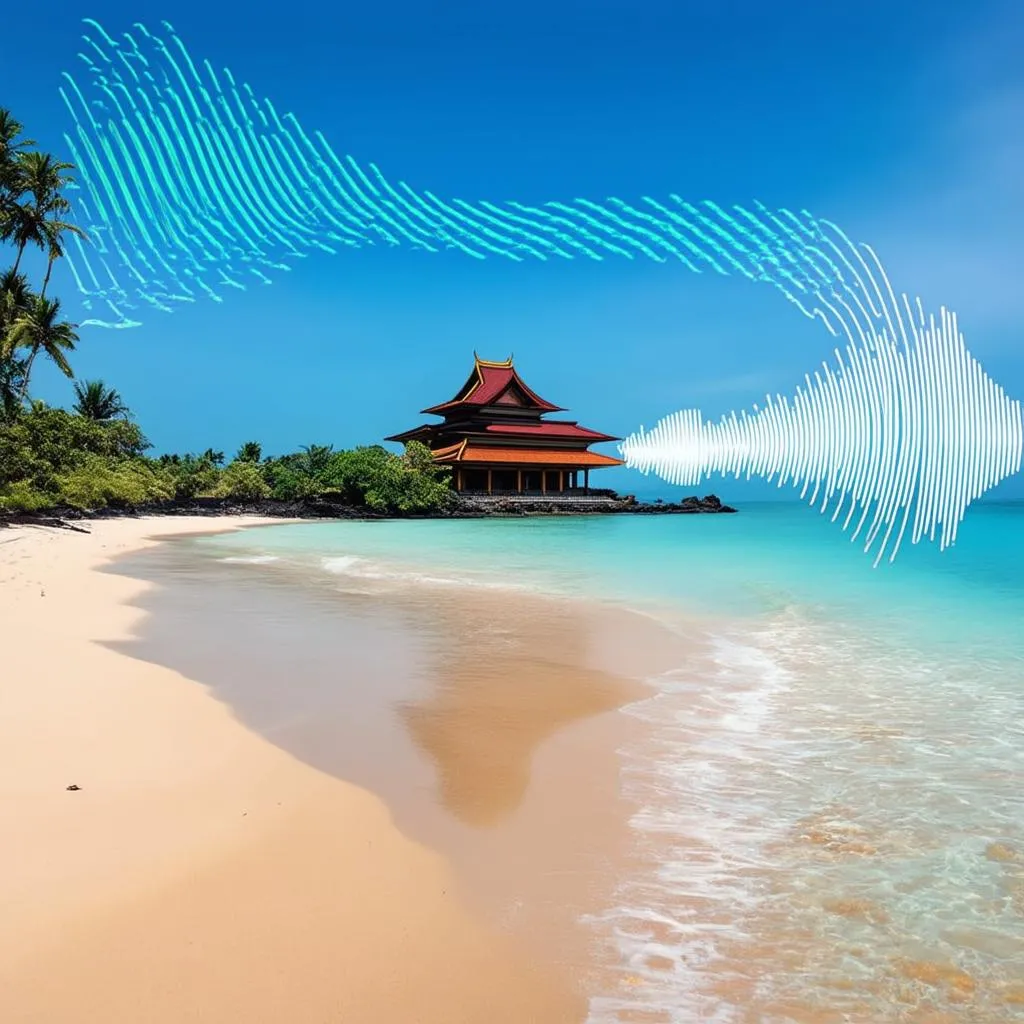Have you ever noticed how different sounds seem to carry in different environments? The roar of a waterfall echoes through a canyon, while the gentle lapping of waves against a sandy beach creates a calming ambiance. This intriguing phenomenon boils down to how sound travels through various mediums. Today, we’ll delve into the science behind sound and uncover where it travels fastest.
The Speed of Sound: It’s All About the Medium
Contrary to popular belief, the speed of sound isn’t constant. It’s heavily influenced by the medium through which it travels.
What do we mean by “medium”? Think of it as the substance that sound waves vibrate through to reach your ears. This could be anything from air and water to solids like steel.
Here’s the key takeaway: Sound travels fastest through denser mediums.
Why? Denser materials have molecules packed more tightly together. This allows sound vibrations to transfer energy more efficiently from one molecule to the next, much like a relay race with a shorter distance between runners.
Solids: The Sound Superhighway
Sound zips through solids at breakneck speeds. Take steel, for instance. Sound travels at a whopping 5,960 meters per second – that’s over 13,000 miles per hour! This explains why placing your ear against a train track lets you hear an approaching train long before the sound reaches you through the air.
Liquids: A Slower Pace
Liquids, with their less tightly packed molecules, don’t conduct sound as effectively as solids. Sound travels through water at approximately 1,480 meters per second. This explains why whales, despite being miles apart, can communicate through the vast expanse of the ocean.
Air: A Leisurely Stroll
Air, the medium we experience sound in most often, is the slowest of the three. Here, sound travels at a relatively leisurely 343 meters per second.
Think about a time you visited a bustling city like Tokyo. The cacophony of traffic, chattering crowds, and street musicians all blend together, creating a unique soundscape. This is sound traveling through the air, reaching our ears at its characteristic speed.
 Crowded Tokyo Street
Crowded Tokyo Street
Factors Affecting Sound Speed: Temperature Plays a Role
Even within the same medium, factors like temperature can affect sound speed.
Warmer temperatures generally mean faster sound speed. This is because heat causes molecules to move faster, allowing sound vibrations to propagate more quickly.
Imagine yourself relaxing on a beach in Bali. The warm, tropical air carries the gentle sound of gamelan music from a nearby temple, creating a serene atmosphere.
 Bali Beach Soundscape
Bali Beach Soundscape
FAQs: Your Burning Sound Questions Answered
Q: Why does sound travel faster in water than in air?
A: Water is denser than air, meaning its molecules are closer together. This allows sound waves to transfer energy more efficiently, resulting in faster sound speed.
Q: Does sound travel in space?
A: No, sound cannot travel in the vacuum of space. It needs a medium to propagate, and space lacks any matter for sound waves to vibrate.
Travelcar.edu.vn: Your Travel Companion
At Travelcar.edu.vn, we’re passionate about exploring the world and understanding the wonders that surround us. We believe that knowledge enhances every journey, making it richer and more meaningful.
From the bustling streets of Tokyo to the tranquil beaches of Bali, the world is a symphony of sounds waiting to be discovered. So, pack your bags, open your ears, and embark on a sonic adventure today!